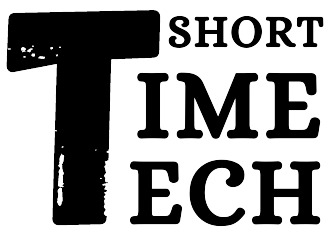The internet has come a long way since its inception, evolving through various stages, from the static web pages of Web 1.0 to the dynamic, user-generated content of Web 2.0 and the semantic, interconnected experiences of Web 3.0. Now, as we move into 2024, the dawn of Web 4.0 is upon us, promising to revolutionize the digital landscape once again. This new era of the internet is expected to bring unprecedented levels of interactivity, personalization, and intelligence, transforming how users interact with the web and each other. In this article, we will explore what Web 4.0 is, its key features, and how it will impact users.
What is Web 4.0?
Web 4.0, often referred to as the “Symbiotic Web,” represents the next significant leap in internet technology. Unlike its predecessors, Web 4.0 aims to create a more intelligent, autonomous, and immersive web experience. It is characterized by the integration of artificial intelligence (AI), machine learning, and advanced data analytics to deliver highly personalized and context-aware content to users. Web 4.0 is expected to be more adaptive and responsive, capable of understanding and predicting user needs and preferences in real time.
One of the most defining features of Web 4.0 is its focus on seamless interaction between humans and machines. This means that the web will no longer be just a tool for accessing information; it will become a proactive assistant, capable of making decisions and taking actions on behalf of users. This is made possible through the development of advanced AI algorithms and natural language processing, which allow machines to understand and interpret human language and behavior with greater accuracy.
Key Features of Web 4.0
Web 4.0 introduces several groundbreaking features that set it apart from previous iterations of the web. These include:
- Hyper-Personalization: Web 4.0 takes personalization to a whole new level. By leveraging AI and machine learning, the web can analyze vast amounts of data to understand individual user preferences and behaviors. This enables the delivery of highly customized content, services, and recommendations tailored to each user’s unique needs and desires. For example, an e-commerce platform powered by Web 4.0 could predict what products a user is likely to purchase based on their browsing history, social media activity, and even their current mood.
- Decentralization and Blockchain Integration: Web 4.0 is expected to build on the decentralized nature of Web 3.0, with even greater emphasis on user privacy, security, and data ownership. Blockchain technology will play a crucial role in this, enabling secure, transparent, and tamper-proof transactions and data exchanges. Users will have more control over their personal information, and data breaches will become less common as decentralized systems eliminate single points of failure.
- Immersive Experiences: The next generation of the web will be more immersive than ever, thanks to advancements in virtual reality (VR), augmented reality (AR), and the metaverse. Web 4.0 will enable users to interact with digital content in three-dimensional spaces, blurring the lines between the physical and digital worlds. This will open up new possibilities for social interactions, entertainment, and education, allowing users to experience the internet in entirely new ways.
How Web 4.0 Will Impact Users
The evolution of Web 4.0 will have a profound impact on users, changing the way we interact with the internet and each other. One of the most significant changes will be the shift from passive to active web experiences. With Web 4.0, users will no longer need to search for information or content actively; instead, the web will anticipate their needs and deliver relevant content automatically. This will save time and effort while providing a more seamless and intuitive user experience.
Furthermore, the integration of AI and machine learning into Web 4.0 will enable more meaningful and personalized interactions between users and digital platforms. For example, virtual assistants powered by Web 4.0 will be able to understand and respond to complex queries, provide personalized recommendations, and even perform tasks on behalf of users, such as booking appointments or making purchases. This will make the internet a more valuable and indispensable tool in our daily lives.
However, with these advancements come new challenges. As Web 4.0 becomes more intelligent and autonomous, concerns about privacy, security, and data ethics will also rise. Users will need to be more vigilant about how their data is collected, stored, and used, and there will be a growing demand for transparency and accountability from tech companies.
Conclusion
Web 4.0 represents the next frontier in the evolution of the internet, promising to deliver more personalized, intelligent, and immersive experiences for users. As we move into this new era, the web will become an even more integral part of our lives, transforming how we access information, interact with digital content, and connect with others. While the potential benefits of Web 4.0 are immense, it is essential to approach this new technology with caution, ensuring that it is developed and used in a way that respects user privacy, security, and ethical considerations. As 2024 unfolds, the journey into Web 4.0 will undoubtedly shape the future of the internet and our digital lives.

